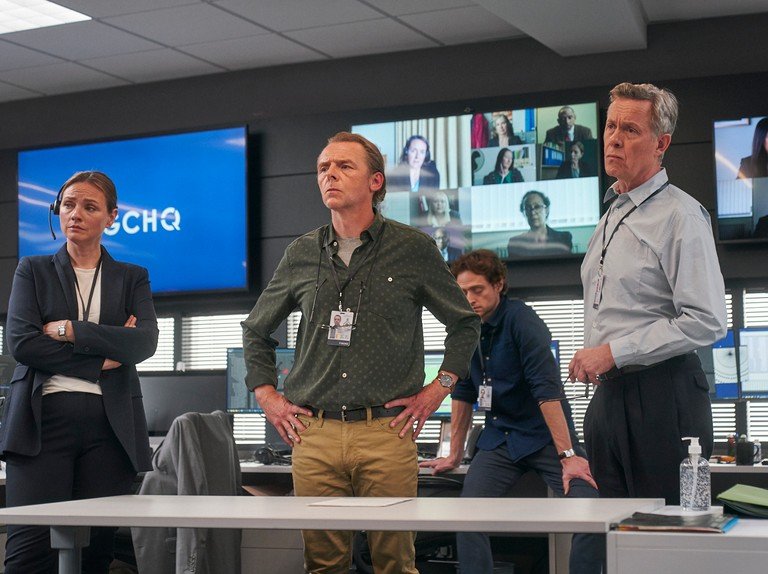A Lullaby for Yellow Roses (2023) Short Film Review: India’s so-called ‘culture’ is ridden with its own conflicts and contradictions. On each step, one is bound to find a certain clash, whether it is the one between progress and tradition or the one between preaching and actual practice. This contradiction can be seen in how patriarchal institutions of power in this country, usually led by a family unit, observes the feminine. The way it toys with women is, to put it bluntly, reprehensible. One day, there is a celebration of her ‘divine powers,’ and another day marks the condemnation of the very natural processes which make her powerful.
The “extreme” face of Indian society constantly attempts to present itself as a distinct environment, different and more powerful than the others in more ways than one. However, its treatment of women as burdens is what distinguishes it from the rest of the world’s traditionalist cultures. The thread of discrimination is often, and for the right reasons, seen as more unifying than the one that seeks to liberate and equalize. This is also precisely what makes female infanticide, a criminal act that has also been a tradition as old as the ‘civilization,’ an inherently Indian problem.
There have been films that raise voices against what has been happening with the girl child living under the shadow of the towering Indian patriarch. However, director Rahul Roye takes to the roots that germinate the issue and treats it with emotional honesty and a tinge of complexity. It is a minor miracle that the film sharply steers clear from needless romanticism or a mere shade into the discourse and rather enhances it with a study of relationships and grief.
A Lullaby of Yellow Roses is set in the hustle and bustle of a big city in which Pankaj and Beena are immigrants, presumably from Uttar Pradesh or Bihar. The couple lives with Pankaj’s aging mother in a small hutment not very far from the apartment where the man works as a watchman. Beena has, reluctantly and under the pressure of her mother-in-law, abandoned her newborn daughter. The rest of the film finds the couple trying hard to return to some form of normalcy and, more importantly, derive closure from their union.
What makes the film a radical effort is how a patriarchal institution is informed about not through grandstanding details or expositions but with simple stretches of normally pitched conversations. The only man in the frame, Pankaj, is more compassionate than he would let on in the first few frames. Nonetheless, the desire to erase a daughter in order to obtain the matriarch has registered a son, her conditioning towards the mentality making it difficult for us to directly detest her and instead humanly try to see through the vile nature of her rule of the household.
This makes the tragedy manifold. The personal grief of the couple aside, the form of this compulsion as a dying wish, is what makes the ache and anguish more believable than anything. It is also laudable how Trimala Adhikari implants this sense of tragedy with absolute commitment. As Beena, her physicality and moments of quiet reflection are deeply moving and even hard to watch.
The visuals, shot by Enosh Olivera, sumptuously capture the freely flowing yet constricted spaces of the unnamed metro city’s urban jungle, capturing in extensive detail the posh space of the apartment and the cramped one of the house in which the couple lives. The compelling cinematography nearly pauses time and meditates on the seeming confusion on where the couple’s paths end up or if they have a culmination. It is fitting that a crucial (and masterful) edge of the film involves a car in the dark of night, with sounds of hushed and collective weeping.
Even above its morality and narrative, A Lullaby for Yellow Roses is a powerful plea to listen to the working class. In the times when there is an attempt to sabotage the space the working and migrating community of the country to instruct it, the film tells the viewer to hang in there and take some perspective. The grief, quiet romance, depression, and heartbreak all double up when taken as some key elements of a thriving global humanity of which these people form a part. It is only necessary to educate rather than eradicate.
A Lullaby for Yellow Roses has maybe one scene that punctures the flow of the narrative- the anniversary card scene didn’t really land for me. However, the rest of the film is so beautifully fluid and mournful that I couldn’t take my eyes off it either. It is one of the more important Indian short films that you are going to see this year.






![Azor [2021] Review: A Solid Thriller that Engrosses More than It Thrills](https://79468c92.delivery.rocketcdn.me/wp-content/uploads/2021/09/Azor-2021-scaled-e1631120667650-768x430.jpg)
